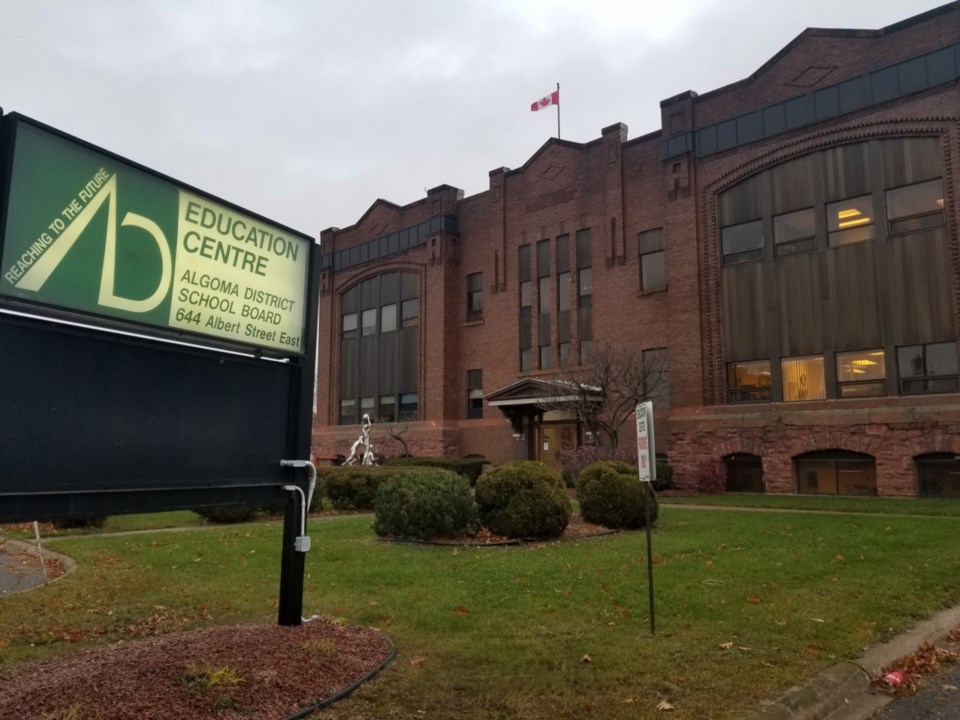Teachers with the Algoma District School Board will be tasked with reviewing its course materials to weed out any books containing slurs toward marginalized groups before students return to class in the fall.
The board’s superintendent of well-being and Indigenous education says the move to eliminate slurs from educational resources used in the classroom by way of its ‘resource selection checklist’ is not a book ban.
“We have not created a banned list of books. I know that’s coming through from some. No, we haven’t — we have created a checklist that teachers are going to use their professional judgment to apply when picking resources,” said Joe Maurice during a telephone interview with SooToday Thursday.
The school board has gathered feedback over the years through meetings with parents, families and community partners, in addition to pulling data from a student census and well-being survey from 2019 and a survey of Indigenous students conducted in 2018.
“Through all those different discussions, one thing has become clear: there are a number of slurs that are causing harm,” Maurice said.
The resource selection checklist was discussed during the open portion of last month's school board meeting before being introduced during a professional development day that took place May 20.
Maurice says the original idea was to begin diversifying educational resources beginning next year, but resources containing slurs toward marginalized groups were highlighted as an area of concern during consultations with students, parents and community members.
“If we’re saying slurs are harmful and we can’t use them — we can’t be saying them out loud, we can’t be using them in class as a teacher, as a staff member or as a student because we admit they harm, which has been shared with us from students and families from different groups — how can we justify using those same words, then, in a resource we’re giving all students that they have to use in class that day?” he added.
While many books containing slurs will be pulled from the classroom by this fall, Maurice says that some exceptions will be made — he brings up the slurs used in the book Indian Horse by Anishinaabe writer Richard Wagamese as an example — for authors from marginalized communities who are using slurs to illustrate lived experiences.
“Now, it’s going to need some teaching around it, it’s going to need some heads-up to the students as we start the book that there’s going to be some in here — but we see there’s going to be some flex in those areas,” he said.
Maurice added that eliminating some slurs from course material doesn’t mean the school board will be shutting down difficult conversations in the classroom.
“We want to talk about residential schools, we want to talk about racism. We want to talk about social justice, we want to talk about homophobia. But we don’t necessarily have to use the strong slurs,” he said. “There are books that still get to the same point, or that are at least written by authors from those oppressed groups.”
The school board intends to keep a number of books containing slurs in its libraries going forward.
“We’re not banning those books. We’re just not using them, necessarily, for course work,” Maurice said.
The school board’s resource selection checklist is one of the first steps in its broader plan to diversify its educational resources with works by authors from marginalized groups and oppressed communities over the next few years.
Maurice says that data from student well-being surveys has shown the board that it needs to take concrete steps toward making all students feel “safe and included.”
“They don’t feel as welcome, they don’t feel as supported. They’re saying straight out they don’t see themselves in the resources in the classroom,” he said.
Algoma District School Board re-affirmed its commitment to "facilitating inclusive environments that are supportive and welcoming to all students, staff, families and community partners" in a news release issued last month.
